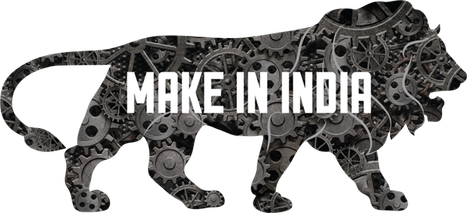Scapegoating the Entrepreneur: India's Misguided Response to Accidents

We are devastated beyond words to learn about the tragic airline crash in Ahmedabad. Our hearts go out to the victims and their families.
I would, however, like to use this moment to draw the government’s attention to a larger issue that often remains unaddressed.
Commercial airline operations are among the most regulated in the world. They are run by highly trained professionals and rely on some of the most advanced technology available. Yet, even such meticulously controlled systems can sometimes suffer catastrophic failures. Some tragedies, like this one, could be what we call black swan events—rare, unforeseeable, and perhaps fated despite every precaution and protocol.
While the enterprises involved will no doubt be called to account, we are encouraged to see that no one has so far called for the shutdown of Air India, the Ahmedabad airport, or even Boeing. Unfortunately, this balanced response is not always the norm. In less high-profile sectors, businesses are often swiftly and harshly penalized for lapses that are more symptomatic of systemic issues.
Most accidents in our country—especially outside the aviation sector—are not black swan events. They are preventable, and more often than not, they are due to human error. Yet in nearly every such case, the business running the operation is swiftly penalized. Licenses are cancelled, establishments are shut down, and the narrative ends with a missing clearance or paperwork violation. While accountability is essential, this approach fails to address the deeper, underlying issues.
Sometimes, yes, businesses do behave irresponsibly and flout safety norms for greed, and they deserve the strictest retribution. But we must also recognise a broader reality. Until recently, businesses in India were forced to navigate a labyrinth of impractical and conflicting regulations just to remain operational. In such a setup, full compliance with every rule was nearly impossible. When accidents occur, it is usually only the entrepreneur who bears the brunt—not only for genuine lapses but also for the failures of governance, bureaucratic inefficiencies and employee negligence. This systemic imbalance deserves honest examination.
We acknowledge that compliance norms are now already being streamlined, and hope that the efforts continue and improvements fully reflect at the grassroots sooner than later. That brings us to another fundamental issue that has not been addressed: the quality of manpower and work ethics in many parts of our country.
We urgently need focused efforts on improving skill levels of manpower across the board, on a war footing. This begins with strengthening our public education system at both the primary and secondary levels. Foundational learning must be robust and followed by accessible and meaningful vocational training. Too many young people enter the workforce without basic literacy, numeracy, or job-readiness, which has a direct bearing on both productivity and safety.
Equally critical is the need to restore work ethics to a place of pride and discipline. "कर्म ही पूजा है" (Work is Worship) has sadly become an aphorism restricted to textbooks. In practice, professionalism and commitment to the task at hand are often missing.
One deeply concerning aspect of this erosion is the misuse of smartphones at the workplace. Rather than serving as tools for productivity, smartphones have become instruments of constant distraction. It’s not uncommon to hire a skilled worker—be it a painter, carpenter, or tailor—and find them playing a movie or video on their phone while working. With this level of divided attention, quality and safety are bound to suffer. A cook leaves the stove unattended because he was watching reels. When a fire breaks out as a result, who bears the consequences? The employer? The establishment? No-one talks about these subtle yet serious shifts in attention and accountability that lead to preventable disasters. Besides the safety hazards, the lack of work ethics has also deeply affected the quality of our output. In our own industry, the only weavers who still produce artisanal-quality textiles are those who do not own a smartphone, mostly the older folk. The new breed are often unable to sustain the deep focus and rhythm required at the handloom.
It is often said that labour is cheap in India, particularly in states like Uttar Pradesh and Bihar. But that may prove to be completely incorrect if we tie cost to productivity. For the amount and quality of work delivered, our labour may well be among the most expensive in the world. This could very well be one of the major reasons why efforts to position India as a global manufacturing hub have received lukewarm responses from multinational companies. While significant strides have been made in improving physical infrastructure, progress on social infrastructure—discipline, accountability, skill, and ethics—needs equal, if not more, attention.
The vote-driven nature of politics in India, and in many other democracies, often limits the willingness of the state to enforce high standards of productivity and work culture—standards that are perhaps more easily upheld in centrally governed economies like China’s. That makes us wonder: should businesses not have some voice in electoral politics? Perhaps a vote, linked to the number of people they employ or the taxes they contribute. Such representation could help bring to the fore governments that prioritise long-term infrastructure—both physical and social—over short-term optics. To be fair, the Modi government has made commendable progress in this direction, and our deepest gratitude is due. But the journey is far from over.
We must address these foundational challenges if we are serious about reaching our rightful place in the world. Shutting down hardworking businesses after every tragedy caused by human error may offer quick optics, but not real change. It is time we acknowledge this uncomfortable truth and commit to systemic improvement, rather than superficial scapegoating.
Every tragedy such as the one we witnessed with Air India 171 reminds us that the machinery of our existence—no matter how advanced—will, at times, falter in ways we cannot fully anticipate or prevent. But our real tribute to those who lose their lives in such incidents lies in ensuring we prevent the ones that can be prevented. That will require some honest, foundational corrections. And it is a responsibility we all must share.






























Leave a comment
This site is protected by hCaptcha and the hCaptcha Privacy Policy and Terms of Service apply.